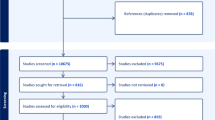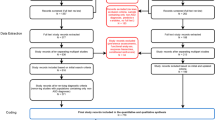Abstract
Objective
The study examined parent-youth agreement regarding reports on psychopathology among adolescents suffering from psychiatric disorders.
Method
A total of 1,718 patients between the age of 11 and 18, as well as their parents, were assessed using the child behavior checklist (CBCL), and the youth self-report (YSR).
Results
Poor to low agreement between parent- and adolescent-reported problem behavior on the internalizing scale, the total problem scale and moderate agreement concerning the externalizing scale of the CBCL and the YSR were found. Independent from the amount of psychiatric diagnoses, adolescents reported significantly less behavioral problems than their parents. Concerning externalizing problems, parent-youth disagreement was stronger for patients suffering from comorbid psychiatric disorders, than for adolescents displaying only one psychiatric disorder.
Conclusion
In clinically referred children, parents are likely to emphasize the severity of the difficulties, whereas adolescents’ under-report symptoms.
Similar content being viewed by others
References
Achenbach TM (1995) Diagnosis, assessment, and comorbidity in psychosocial treatment research. J Abnorm Child Psychol 23:45–65
Achenbach TM (1991a) Integrative guide for the 1991 CBCL/4-18, YSR and TRF profiles. University of Vermont, Department of Psychiatry, Burlington
Achenbach TM (1991b) Manual for the child behavior checklist/4–18 and 1991 profile. University of Vermont, Department of Psychiatry, Burlington
Achenbach TM (1991c) Manual for the youth self report form and 1991 profile. University of Vermont, Department of Psychiatry, Burlington
Achenbach TM, McConaughy SH, Howell CT (1987) Child/adolescent behavioral and emotional problems: implications of cross-informant correlations for situational specificity. Psychol Bull 101:213–232
Angold A, Costello EJ, Erkanli A (1999) Comorbidity. J Child Psychol Psychiatry 40:57–87
Angold A, Weissman MM, John K, Merikangas KR, Prusoff BA, Wickramaratne P, Gammon GD, Warner V (1987) Parent and child reports of depressive symptoms in children at low and high risk of depression. J Child Psychol Psychiatry 28:901–915
Berg-Nielsen TS, Vika A, Dahl AA (2003) When adolescents disagree with their mothers: CBCL-YSR discrepancies related to maternal depression and adolescent self-esteem. Child Care Health Dev 29:207–213
Beyers JML, R (2003) Developmental aspects of delinquency and co-occuring aggression and depressed mood in male adolescents. J Abnorm Child Psychol 31:247–266
Bird HR, Gould MS, Staghezza B (1992) Aggregating data from multiple informants in child psychiatry epidemiological research. J Am Acad Child Adolesc Psychiatry 31:78–85
Bland JM, Altman DG (1986) Statistical methods for assessing agreement between two methods of clinical measurement. Lancet 1:307–310
Cantwell DP, Lewinsohn PM, Rohde P, Seeley JR (1997) Correspondence between adolescent report and parent report of psychiatric diagnostic data. J Am Acad Child Adolesc Psychiatry 36:610–619
Chi TC, Hinshaw SP (2002) Mother–child relationships of children with ADHD: the role of maternal depressive symptoms and depression-related distortions. J Abnorm Child Psychol 30:387–400
Choudhury MS, Pimentel SS, Kendall PC (2003) Childhood anxiety disorders: parent–child (dis)agreement using a structured interview for the DSM-IV. J Am Acad Child Adolesc Psychiatry 42:957–964
Comer JS, Kendall PC (2004) A symptom-level examination of parent–child agreement in the diagnosis of anxious youths. J Am Acad Child Adolesc Psychiatry 43:878–886
Crystal DS, Ostrander R, Chen RS, August GJ (2001) Multimethod assessment of psychopathology among DSM-IV subtypes of children with attention-deficit/hyperactivity disorder: self-, parent, and teacher reports. J Abnorm Child Psychol 29:189–205
De Los Reyes A, Kazdin AE (2005) Informant discrepancies in the assessment of childhood psychopathology: a critical review, theoretical framework, and recommendations for further study. Psychol Bull 131:483–509
Doepfner M, Berner W., Lehmkuhl G (1995) Reliabilität und faktorielle Validität des youth self-reports. Diagnostica 41:221–244
Dopfner M, Schmeck K, Berner W, Lehmkuhl G, Poustka F (1994) Reliability and factorial validity of the child behavior checklist–an analysis of a clinical and field sample]. Z Kinder Jugendpsychiatr 22:189–205
Edelbrock C, Costello AJ, Dulcan MK, Conover NC, Kala R (1986) Parent–child agreement on child psychiatric symptoms assessed via structured interview. J Child Psychol Psychiatry 27:181–190
Engel NA, Rodrigue JR, Geffken GR (1994) Parent–child agreement on ratings of anxiety in children. Psychol Rep 75:1251–1260
Englert E, Poustka F (1995) Das Frankfurter Kinder- und Jugendpsychiatrische Dokumentationssystem. Prax Kinderpsychol Kinderpsychiat 44:158–167
Ferdinand RF, van der Ende J, Verhulst FC (2004) Parent-adolescent disagreement regarding psychopathology in adolescents from the general population as a risk factor for adverse outcome. J Abnorm Psychol 113:198–206
Ferdinand RF, van der Ende J, Verhulst FC (2006) Prognostic value of parent-adolescent disagreement in a referred sample. Eur Child Adolesc Psychiatry 15:156–162
Grills AE, Ollendick TH (2003) Multiple informant agreement and the anxiety disorders interview schedule for parents and children. J Am Acad Child Adolesc Psychiatry 42:30–40
Jensen PS, Rubio-Stipec M, Canino G, Bird HR, Dulcan MK, Schwab-Stone ME, Lahey BB (1999) Parent and child contributions to diagnosis of mental disorder: are both informants always necessary? J Am Acad Child Adolesc Psychiatry 38:1569–1579
Kazdin AE, French NH, Unis AS (1983) Child, mother, and father evaluations of depression in psychiatric inpatient children. J Abnorm Child Psychol 11:167–179
Kendall PC, Flannery-Schroeder EC (1998) Methodological issues in treatment research for anxiety disorders in youth. J Abnorm Child Psychol 26:27–38
Kolko DJ, Kazdin AE (1993) Emotional/behavioral problems in clinic and nonclinic children: correspondence among child, parent and teacher reports. J Child Psychol Psychiatry 34:991–1006
MacLeod RJ, McNamee JE, Boyle MH, Offord DR, Friedrich M (1999) Identification of childhood psychiatric disorder by informant: comparisons of clinic and community samples. Can J Psychiatry 44:144–150
Phares V, Danforth JS (1994) Adolescents’, parents’, and teachers’ distress over adolescents’ behavior. J Abnorm Child Psychol 22:721–732
Ritsher JE, Warner V, Johnson JG, Dohrenwend BP (2001) Inter-generational longitudinal study of social class and depression: a test of social causation and social selection models. Br J Psychiatry Suppl 40:s84–s90
Schmeck K, Poustka F, Dopfner M, Pluck J, Berner W, Lehmkuhl G, Fegert JM, Lenz K, Huss M, Lehmkuhl U (2001) Discriminant validity of the child behaviour checklist CBCL-4/18 in German samples. Eur Child Adolesc Psychiatry 10:240–247
Seiffge-Krenke I, Kollmar F (1998) Discrepancies between mothers’ and fathers’ perceptions of sons’ and daughters’ problem behaviour: a longitudinal analysis of parent-adolescent agreement on internalising and externalising problem behaviour. J Child Psychol Psychiatry 39:687–697
Sourander A, Helstela L, Helenius H (1999) Parent-adolescent agreement on emotional and behavioral problems. Soc Psychiatry Psychiatr Epidemiol 34:657–663
Stanger C, Achenbach TM, McConaughy SH (1993) Three-year course of behavioral/emotional problems in a national sample of 4- to 16-year-olds: 3. Predictors of signs of disturbance. J Consult Clin Psychol 61:839–848
Thurber S, Osborn RA (1993) Comparisons of parent and adolescent perspectives on deviance. J Genet Psychol 154:25–32
Treutler CM, Epkins CC (2003) Are discrepancies among child, mother, and father reports on children’s behavior related to parents’ psychological symptoms and aspects of parent–child relationships? J Abnorm Child Psychol 31:13–27
Verhulst FC, Althaus M, Berden GF (1987) The child assessment schedule: parent–child agreement and validity measures. J Child Psychol Psychiatry 28:455–466
Verhulst FC, van der Ende J (1992) Agreement between parents’ reports and adolescents’ self-reports of problem behavior. J Child Psychol Psychiatry 33:1011–1023
Weiss B, Susser K, Catron T (1998) Common and specific features of childhood psychopathology. J Abnorm Psychol 107:118–127
Wilk JE, West JC, Narrow WE, Marcus S, Rubio-Stipec M, Rae DS, Pincus HA, Regier DA (2006) Comorbidity patterns in routine psychiatric practice: is there evidence of underdetection and underdiagnosis? Compr Psychiatry 47:258–264
Yeh M, Weisz JR (2001) Why are we here at the clinic? Parent–child (dis)agreement on referral problems at outpatient treatment entry. J Consult Clin Psychol 69:1018–1025
Author information
Authors and Affiliations
Rights and permissions
About this article
Cite this article
Salbach-Andrae, H., Klinkowski, N., Lenz, K. et al. Agreement between youth-reported and parent-reported psychopathology in a referred sample. Eur Child Adolesc Psychiatry 18, 136–143 (2009). https://doi.org/10.1007/s00787-008-0710-z
Received:
Accepted:
Published:
Issue Date:
DOI: https://doi.org/10.1007/s00787-008-0710-z




